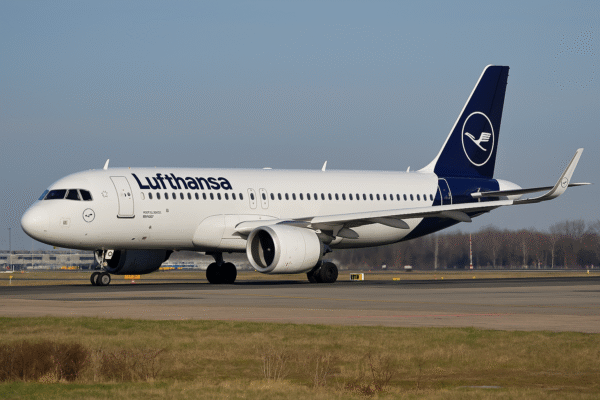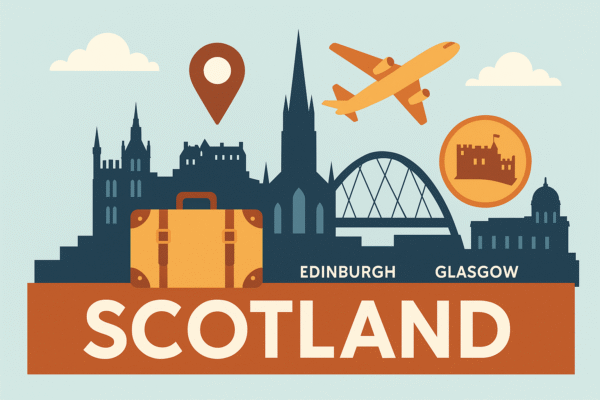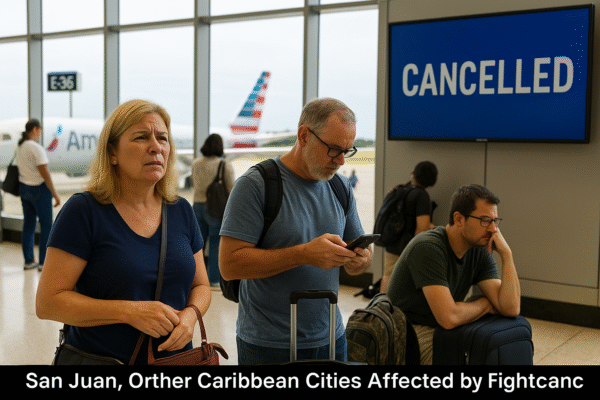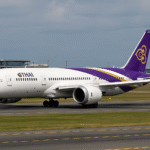British Airways, the United Kingdom’s flagship carrier, has recently canceled several flights connecting London Heathrow to major European destinations. The sudden cancellations affected routes to Berlin and Brussels, leaving passengers frustrated and creating ripple effects across the tourism and business travel sectors.
The disruptions come at a time when European tourism is steadily recovering after the global pandemic, with travel demand at an all-time high. For many passengers, the cancellations have not only caused delays but also raised concerns about the resilience of airline operations in the face of mounting challenges.
Details of the Flight Cancellations
On Sunday, British Airways suspended six flights on the London Heathrow–Berlin and London Heathrow–Brussels routes. The affected flights included both outbound and inbound services, effectively halting travel for hundreds of passengers. The airline attributed the cancellations to a mix of crew shortages and technical issues, worsened by the surge in travel demand during the autumn season.
The canceled flights were as follows:
- London Heathrow (LHR) – Berlin-Brandenburg (BER): BAW982, BAW992
- Berlin-Brandenburg (BER) – London Heathrow (LHR): BAW979, BAW993
- London Heathrow (LHR) – Brussels (BRU): BAW392
- Brussels (BRU) – London Heathrow (LHR): BAW393
Such cancellations are not just logistical setbacks; they represent major interruptions for both leisure and business travelers who depend on seamless connectivity between these important hubs.
Berlin and Brussels: Two Key European Hubs
Berlin and Brussels are among Europe’s busiest travel and cultural centers. Berlin, the German capital, is a hub of history, innovation, and international events. Brussels, home to the European Union’s headquarters, plays a crucial role in business, politics, and international relations.
With flights between these cities and London frequently filled by tourists, diplomats, and business professionals, the cancellations disrupted far more than holiday plans. They impacted trade negotiations, business conferences, and tourism flows that underpin regional economic growth.
For England, the disruptions carry added weight. London Heathrow serves as the gateway for millions of visitors annually, and cancellations on such routes can weaken England’s tourism momentum at a critical recovery stage.
Passenger Frustration and Travel Inconvenience
For passengers, the immediate consequences were delays, rebookings, and in some cases, cancellations of entire trips. Travelers heading to conferences, trade shows, or family vacations found themselves stranded at airports, navigating queues at customer service counters.
For international visitors planning to explore England, the uncertainty disrupted carefully crafted itineraries. From sightseeing at the Tower of London to attending cultural events in Manchester or Edinburgh, canceled flights meant missed opportunities and financial losses.
Families on short holidays faced difficulty rescheduling, while business travelers risked losing contracts and partnerships due to missed meetings. These disruptions highlight the fragile balance between airline reliability and the expectations of a growing traveler base.
Economic Impact on Business Tourism
Business tourism is a cornerstone of the UK’s economy, and London is often the first stop for executives traveling between Europe and the rest of the world. When British Airways cancels flights, the impact is immediate: meetings are postponed, deals delayed, and large-scale events face reduced attendance.
Brussels and Berlin are particularly sensitive routes for business travel. Brussels hosts thousands of policymakers and corporate leaders, while Berlin has become a hub for tech startups and international fairs. A halt in air connectivity not only affects travelers but also weakens business ties that depend on timely and reliable travel.
Broader Implications for the Tourism Sector
The British Airways cancellations underscore the ongoing turbulence within the aviation industry. Airlines continue to face staff shortages, rising fuel costs, and technical challenges, all while struggling to meet surging post-pandemic travel demand.
For tourism operators in London and across England, these disruptions may result in fewer international arrivals and reduced spending in hotels, restaurants, and attractions. Local businesses—from guided tour providers to event organizers—stand to lose revenue whenever international travelers cannot reach the UK as planned.
Still, the tourism sector remains resilient. Industry experts emphasize the importance of diversification, with more carriers and alternative travel routes helping to absorb shocks caused by sudden cancellations. Enhanced communication between airlines and passengers, along with quicker rebooking systems, will also be key in maintaining traveler confidence.
Looking Ahead
While British Airways has assured passengers that they are working to minimize future disruptions, the cancellations serve as a reminder of the fragile state of aviation. The airline, like many others, is navigating a challenging environment where staff shortages and technical difficulties can quickly derail operations.
For passengers, the incident highlights the need to remain flexible, consider travel insurance, and prepare for sudden changes in itineraries. For the tourism and business sectors, it signals the importance of contingency planning and collaboration across airlines, airports, and governments.
Despite the setbacks, London, Berlin, and Brussels remain among Europe’s most important travel destinations. As recovery continues, ensuring reliable connectivity will be vital not only for tourism but also for the economic growth that depends on seamless international travel.
For more travel news like this, keep reading Global Travel Wire


















